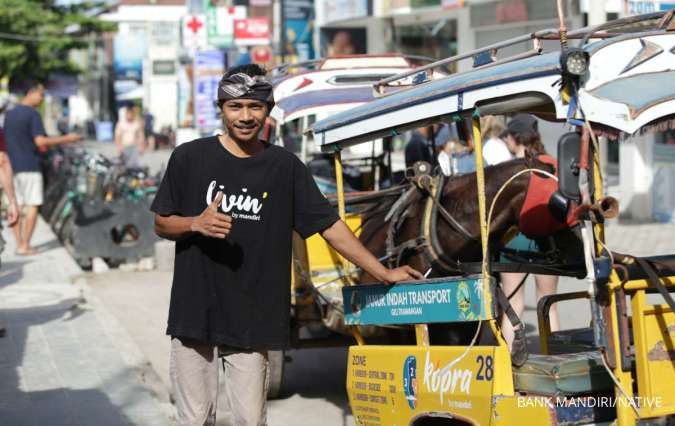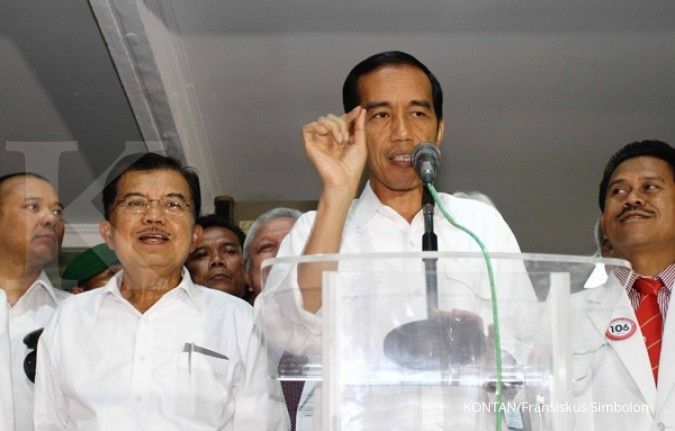JAKARTA. Energy and Mineral Resources Minister Sudirman Said promised on Wednesday to streamline bureaucracy within his ministry so that problems that often hamper decision making could be eliminated. Sudirman, who took office on Monday, said unravelling gridlock in the energy and mining sector was his top priority in order to ensure that there would no longer be delays in the issuance of permits for major energy, oil and gas projects. “As my priority is [resolving] the gridlock, I have to be sure that all organizational machines in the ministry, SKKMigas [the Upstream Oil And Gas Regulatory Special Task Force] and BPH Migas [the Downstream Oil and Gas Regulatory Agency] are functioning well,” Sudirman said. “If there are constraints, there will be refreshers within the next one to two weeks,” Sudirman added. The ministry supervises crucial sectors in the country, namely the oil and gas, minerals and coal, electricity, renewable energy and geology sectors. The natural resources sector is a major contributor to state revenue, and under the 2014 state budget is expected to reach Rp 241 trillion. However, the sector is currently under the spotlight as it has failed to meet numerous significant targets set in the past, including a target of reaching oil production of 1 million barrels per day in 2014. Other examples include the delayed completion of a program to procure 10,000 megawatts of electricity and the establishment of a value-added minerals industry. Various issues have been blamed as drivers of the failure, including prolonged permission processes, regulations that are not friendly to high-risk high-capital oil and gas projects and poor implementation of policies. Several corruption cases in the sector under the previous administration have also worsened the situation. Following the bribery case involving SKKMigas chief Rudi Rubiandini and alleged extortion by previous minister Jero Wacik, there is increasing uncertainty in the sector as well as stalling permission processes and approval of significant projects as officials are afraid of making sensitive decisions. Public policy expert Agus Pambagio said the new minister’s plan to carefully check his institution’s internal affairs would help the ministry to be more transparent to the public. “The Energy and Mineral Resources Ministry is an important ministry, however, the public never knows what problems exist in the sector except permission issues. I’m hoping that after checking up [on the ministry’s internal affairs], the minister will inform the public so that we can understand what is happening,” Agus said. The center of attention in the ministry checkup, according to Agus, would be oil and gas as well as mineral and coal mining, which are the main contributors to state income. He pointed to issues in the downstream oil and gas sector, particularly on the determination of the cost and margin of subsidized-fuel distribution, and royalty payments from thousands of mining license holders as being among the matters to be addressed. “If it’s necessary, changes [in internal ministerial positions] should be made. Part of his [the minister’s] duty is eradicating mafia practices in the oil and gas sector. Mafia practices are not only from outside but can also happen through cooperation among people inside the ministry,” Agus said. (Raras Cahyafitri)
Energy ministry plans internal overhaul
JAKARTA. Energy and Mineral Resources Minister Sudirman Said promised on Wednesday to streamline bureaucracy within his ministry so that problems that often hamper decision making could be eliminated. Sudirman, who took office on Monday, said unravelling gridlock in the energy and mining sector was his top priority in order to ensure that there would no longer be delays in the issuance of permits for major energy, oil and gas projects. “As my priority is [resolving] the gridlock, I have to be sure that all organizational machines in the ministry, SKKMigas [the Upstream Oil And Gas Regulatory Special Task Force] and BPH Migas [the Downstream Oil and Gas Regulatory Agency] are functioning well,” Sudirman said. “If there are constraints, there will be refreshers within the next one to two weeks,” Sudirman added. The ministry supervises crucial sectors in the country, namely the oil and gas, minerals and coal, electricity, renewable energy and geology sectors. The natural resources sector is a major contributor to state revenue, and under the 2014 state budget is expected to reach Rp 241 trillion. However, the sector is currently under the spotlight as it has failed to meet numerous significant targets set in the past, including a target of reaching oil production of 1 million barrels per day in 2014. Other examples include the delayed completion of a program to procure 10,000 megawatts of electricity and the establishment of a value-added minerals industry. Various issues have been blamed as drivers of the failure, including prolonged permission processes, regulations that are not friendly to high-risk high-capital oil and gas projects and poor implementation of policies. Several corruption cases in the sector under the previous administration have also worsened the situation. Following the bribery case involving SKKMigas chief Rudi Rubiandini and alleged extortion by previous minister Jero Wacik, there is increasing uncertainty in the sector as well as stalling permission processes and approval of significant projects as officials are afraid of making sensitive decisions. Public policy expert Agus Pambagio said the new minister’s plan to carefully check his institution’s internal affairs would help the ministry to be more transparent to the public. “The Energy and Mineral Resources Ministry is an important ministry, however, the public never knows what problems exist in the sector except permission issues. I’m hoping that after checking up [on the ministry’s internal affairs], the minister will inform the public so that we can understand what is happening,” Agus said. The center of attention in the ministry checkup, according to Agus, would be oil and gas as well as mineral and coal mining, which are the main contributors to state income. He pointed to issues in the downstream oil and gas sector, particularly on the determination of the cost and margin of subsidized-fuel distribution, and royalty payments from thousands of mining license holders as being among the matters to be addressed. “If it’s necessary, changes [in internal ministerial positions] should be made. Part of his [the minister’s] duty is eradicating mafia practices in the oil and gas sector. Mafia practices are not only from outside but can also happen through cooperation among people inside the ministry,” Agus said. (Raras Cahyafitri)



